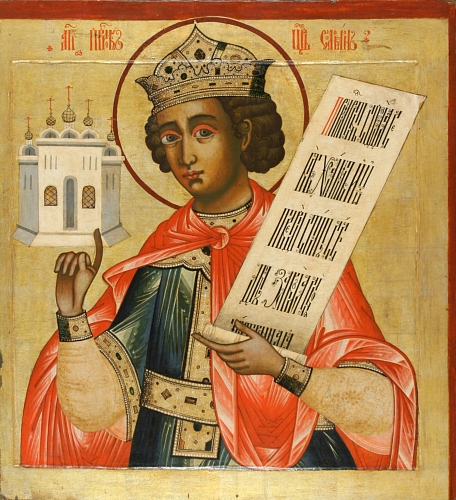
After reading the
Kabra Negast through, I began to notice
more and more themes that are present in the Bible, a lot of which have to do
with King Solomon.
Such themes that are
stressed throughout the text are wisdom and Solomon’s code of ethics. Like the Bible,
wisdom is idealized and brings knowledge, morality and ethics; all of which are
seen and also idealized in the
Kabra
Negast. After studying this texts, I
began to realize this texts serves more as a form of propaganda that is
indoctrinating Christianity into other cultures through a text that is so
similar to the Bible.

The
structure of the text is similar to the Bible by the use of short stories
possessing individual meanings and connecting back to an overarching meaning.
Another observation I made from the two texts was Solomon’s divine power he had
been given by God through a vision. In this vision God offers to grant Solomon
whatever he asks, Solomon then asks God for wisdom. With this, Solomon will
become one of the greatest political powers of his time. Thus reflecting Israel’s
pinnacle point of power.
This position
seems to have an effect on less politically strong powers such as Ethiopia, for
instance the influence of Christianity on Ethiopia via. Israel. This transformation
can be seen during the Queen of Sheba’s change from polytheistic gods to a
monotheistic god (God of Israel). King Solomon’s influence of wisdom also wears
off onto the Queen of Sheba, one can see the principals of a previous culture beginning
to change and transform to a more “ordered” culture. “I am smitten with love of
wisdom and I am constrained by the chords of understanding; for wisdom is far
better than treasure of gold and silver”.
After King
Solomon impregnates the Queen of Sheba, their son is born and eventually brings
the Arc of the Covenant back to Ethiopia from his trip to Jerusalem where he finally
meets his father. During this, their son Menyelek serves as the bearer for the
Christian texts to come into Ethiopia. Once
again this strengthens the point of this text having hints of propaganda that
strengthen Christianity’s influence on Ethiopia.
 After reading the Kabra Negast through, I began to notice
more and more themes that are present in the Bible, a lot of which have to do
with King Solomon. Such themes that are
stressed throughout the text are wisdom and Solomon’s code of ethics. Like the Bible,
wisdom is idealized and brings knowledge, morality and ethics; all of which are
seen and also idealized in the Kabra
Negast. After studying this texts, I
began to realize this texts serves more as a form of propaganda that is
indoctrinating Christianity into other cultures through a text that is so
similar to the Bible.
After reading the Kabra Negast through, I began to notice
more and more themes that are present in the Bible, a lot of which have to do
with King Solomon. Such themes that are
stressed throughout the text are wisdom and Solomon’s code of ethics. Like the Bible,
wisdom is idealized and brings knowledge, morality and ethics; all of which are
seen and also idealized in the Kabra
Negast. After studying this texts, I
began to realize this texts serves more as a form of propaganda that is
indoctrinating Christianity into other cultures through a text that is so
similar to the Bible.
No comments:
Post a Comment